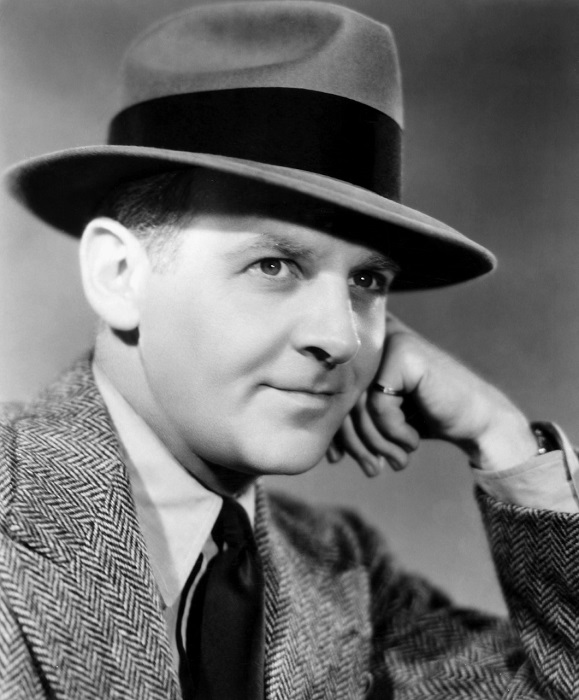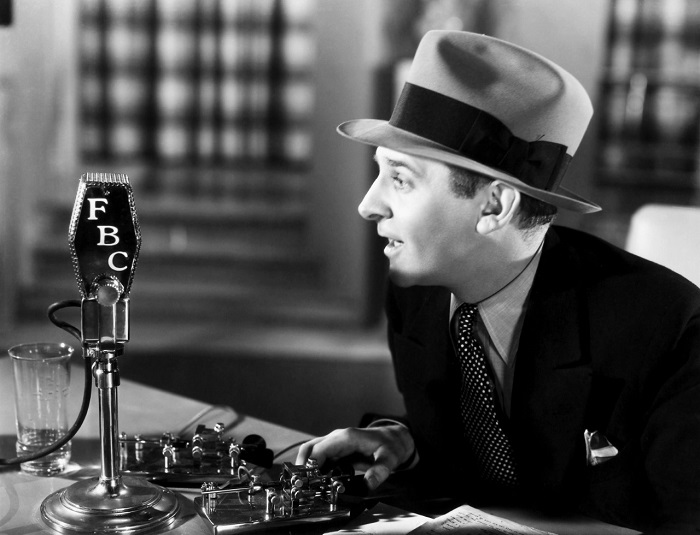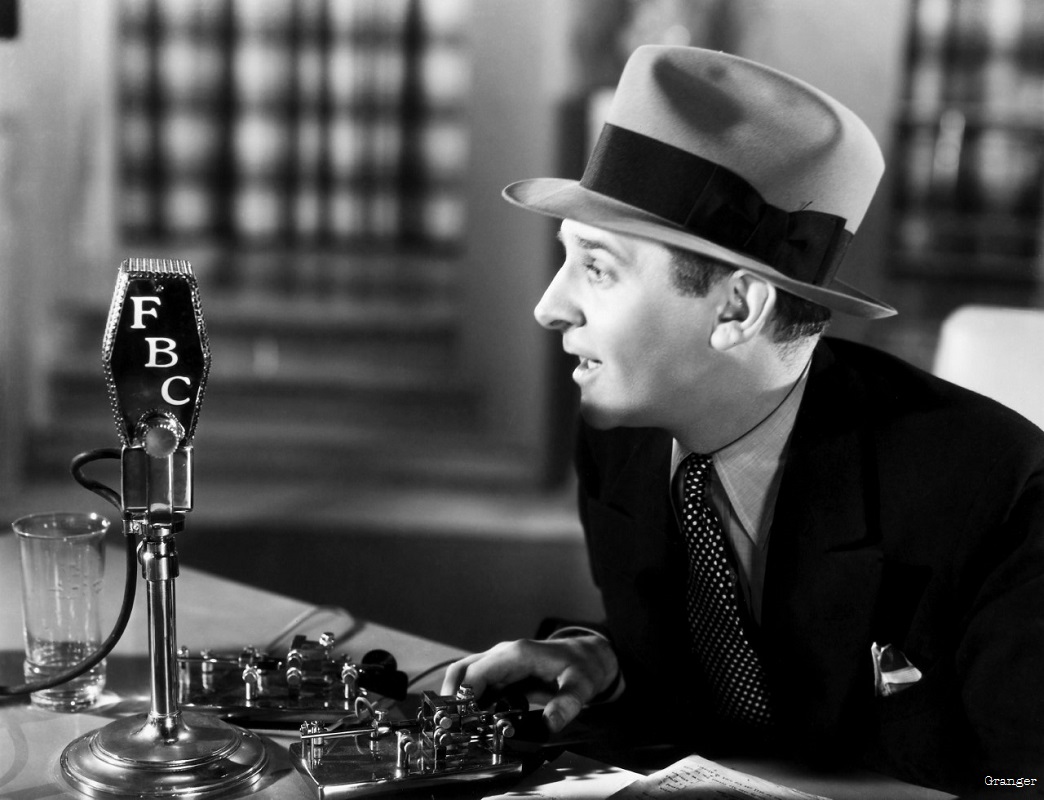A new American Masters documentary Walter Winchell: The Power of Gossip focuses on the life and career of Walter Winchell, an American journalist who revolutionized media culture in the U.S. from the 1930s to 1950s by invigorating his own fast-pace energy and passion for gossip. If there is one man in America who was feared and admired at the same time during that period, it was Winchell. Winchell held enormous power to change other people’s lives. Directed by Ben Loeterman and presented by PBS, the documentary tapped Stanley Tucci as the voice of Winchell and Whoopi Goldberg as the narrator and utilizes recordings and digitized collection of Winchell’s work to reconstruct the life of a pioneer in the field of journalism. “Walter Winchell is the architect of modern American media,” says biographer and film interviewee Neal Gabler in a press statement, “He turned journalism into a form of entertainment.”
 Walter Winchell reinvented America’s field of journalism. Credit: Granger
Walter Winchell reinvented America’s field of journalism. Credit: Granger
Born in New York City in 1897 to Jewish immigrants, Winchell launched his gossip columnist career when his works on theatre bulletin boards, which were “neatly typed and punctuated and contained often far-fetched puns,” was noticed by the publisher of Vaudeville News. He was offered a full-time job in 1927, according to Encyclopedia Britannica. During his career, he had a habit of speaking and writing in Broadway idioms. It was not rare to hear him talk in slang, using words such as “pashing it” and “garbo-ing it.” Millions of people listened to his news report and appreciated his opinionated format, while others detested it. This signature style earned him the title of America’s “most prolific phrase-maker.”
 Walter Winchell was viewed as one of America’s most prolific phrase-makers. Credit: Granger
Walter Winchell was viewed as one of America’s most prolific phrase-makers. Credit: Granger
“Winchell’s is the origin story of fake news; there could not be a timelier moment to unpack it for a wide audience,” Loeterman wrote in an American Masters essay. Loeterman wrote that Winchell was good at “spinning tales about famous people, exploiting his contacts and trading gossip with friends.” He had at times attacked famous people who had offended him or any of his affiliates, which eventually led to many people’s downfalls. Yet, his populist agenda had brought to light bureaucratic injustices amongst the rich and the powerful, which put him on President Franklin Roosevelt’s radar. Roosevelt recruited Winchell in 1933 and asked him to persuade an isolationist American public that the U.S. government should increasingly ramp up its intervention in Europe as facist powers were gaining grounds. “Too bad that a man like Hitler can rise so high in politics, who hates so intensely…. His hatred of the Israelites is contemptible,” Winchell wrote.
After Roosevelt died, Winchell was stuck in political limbo as the new president Harry Truman did not show favor to him the way Roosevelt did. That was until he met Roy Cohn, who eventually became Senator Joseph McCarthy’s aide. During the 1950s, Winchell championed McCarthyism and he had in some instances blackmailed actors, writers and technicians whom he believed to be communists. McCarthy’s downfall brought Winchell’s reputation in the political world to an end. His career only went down from there, and the New York Daily Mirror folded in 1963. Winchell passed away nine years later.
The documentary Walter Winchell: The Power of Gossip premiers on October 20 on PBS.
Next, check out our article on Andrew Haswell Green, unsung hero of Central Park’s creation.






